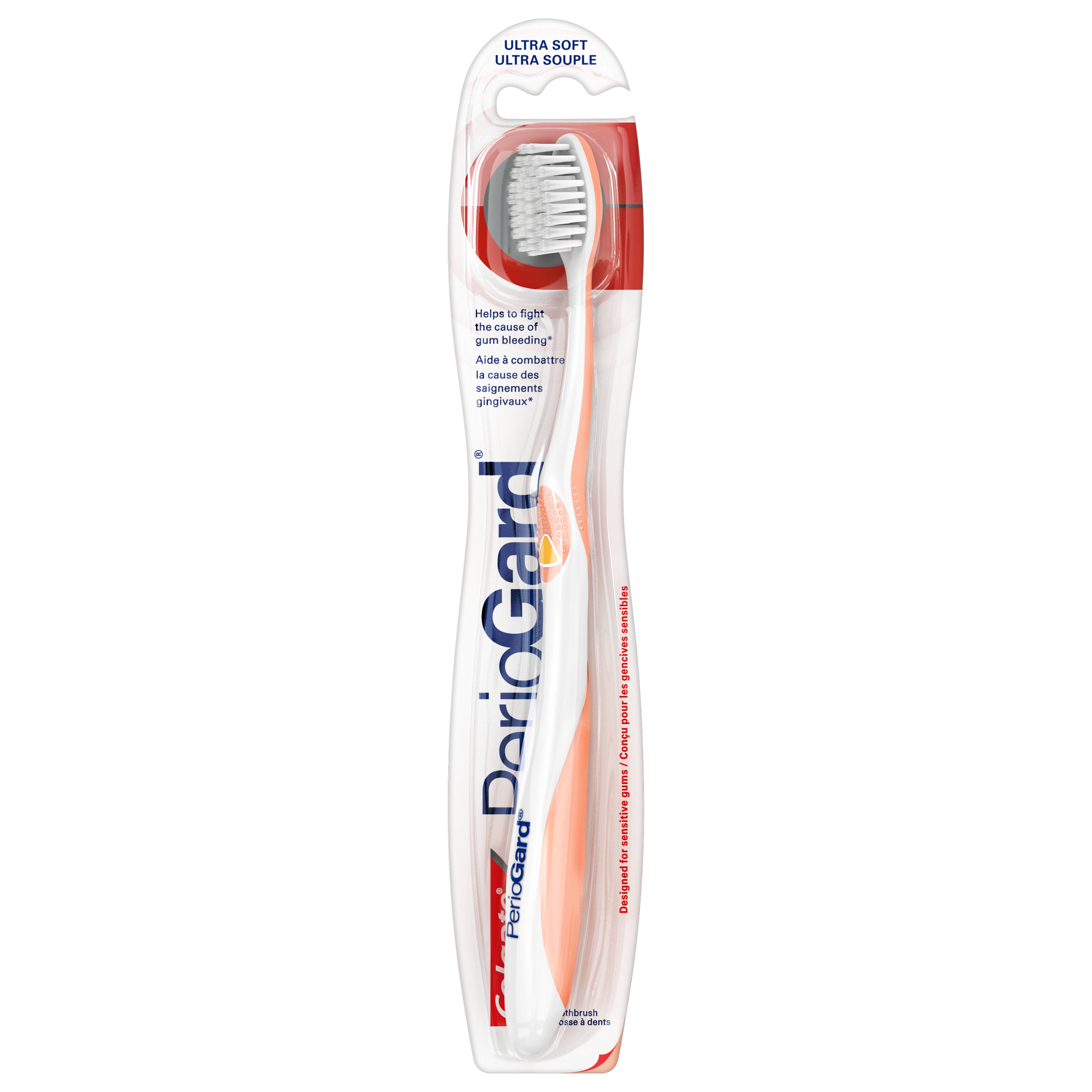Symptoms of Gum Disease
Health Canada explains that gingivitis, the earliest stage of gum disease, is most often caused by poor oral hygiene. It's more common in individuals over 30 years old, and it generally affects men more than women. If you have any of the below symptoms, it's a good idea to make an appointment with your dentist to check your gum health:
- Bleeding, swollen or tender gums.
- Sensitive or loose teeth.
- Receding gums or teeth that appear longer.
- Pain when chewing or a misaligned bite.
- Bad breath.
In the early stage of gum disease, known as gingivitis, the damage to your gums may be reversible. However, once you've developed the more serious form of gum disease known as periodontitis, the breakdown of your gum tissue is irreversible.
The Connection Between Periodontitis and Bad Breath
McGill University explains that bad breath, known clinically as halitosis, is typically caused by bacteria in the mouth. These bacteria break down proteins and release volatile sulfur compounds (VSCs), which have a bad smell. Dental issues, such as gum disease or infection, can contribute to bad breath and make the issue more pronounced.
According to a case study in the Journal of International Society of Preventive & Community Dentistry, the vast majority of halitosis cases relate to gingivitis, periodontitis or bacterial coating of the tongue. In fact, up to 80% of patients with some degree of gum disease also exhibited halitosis in the study.
As a review in the Journal of Natural Science, Biology and Medicine (JNSBM) explains, the inflamed tissues in patients with gum disease can serve as a source for the production of VSCs in the mouth. If the patient has developed periodontitis because of extensive plaque build-up, their perio breath can increase in severity.
Just as the health of the gums affects a person's breath, the reverse is also true — halitosis can, in turn, affect a person's risk of developing periodontal disease. The JNSBM review notes that this may occur when VSC-producing bacteria migrate to the gum tissues, though the connection is not yet fully understood by dental experts.
Treatment for Gum Disease and Perio Breath
Periodontitis requires treatment from a dental professional. My Health Alberta explains that your dentist may treat periodontitis with a procedure called root planing and scaling. This involves removing bacteria and plaque that has built up both above and below the gum line. Your dentist may also prescribe antimicrobial medications to control bacteria in the mouth. In more severe periodontal cases, you may need gum flap surgery or bone or tissue grafts to replace the tissues lost to periodontal disease.
While the treatment for halitosis will depend on the underlying cause, McGill University says that halitosis sufferers should rest assured that improving oral hygiene and paying a visit to the dentist will help in the majority of cases. The good news is that maintaining a strong and consistent oral care routine will lower your risk of both gum disease and halitosis.
Ensure that you follow these steps to keep your oral care in tip-top shape: Brush your teeth at least twice a day with fluoride toothpaste.
- Floss once every day.
- Strengthen your oral care routine with tongue scrapers or mouthwash.
- See your dentist for regular check-ups and ask about additional products to help control bacteria build-up in the mouth, such as a mouth rinse.
Sticking to a good oral hygiene routine will help you feel more confident not only about your breath, but also about the overall health of your mouth.
ORAL HEALTH QUIZ
What's behind your smile?
Take our Oral Health assessment to get the most from your oral care routine
ORAL HEALTH QUIZ
What's behind your smile?
Take our Oral Health assessment to get the most from your oral care routine














